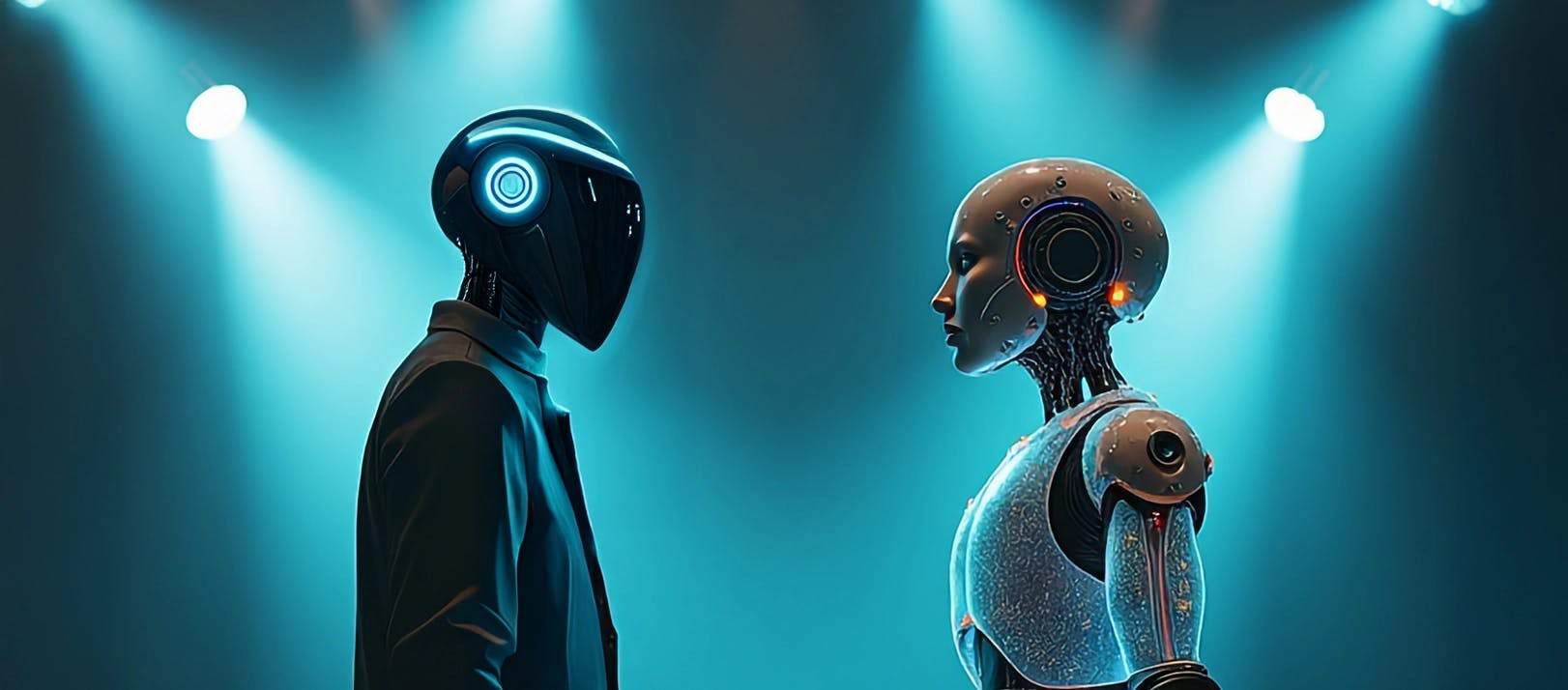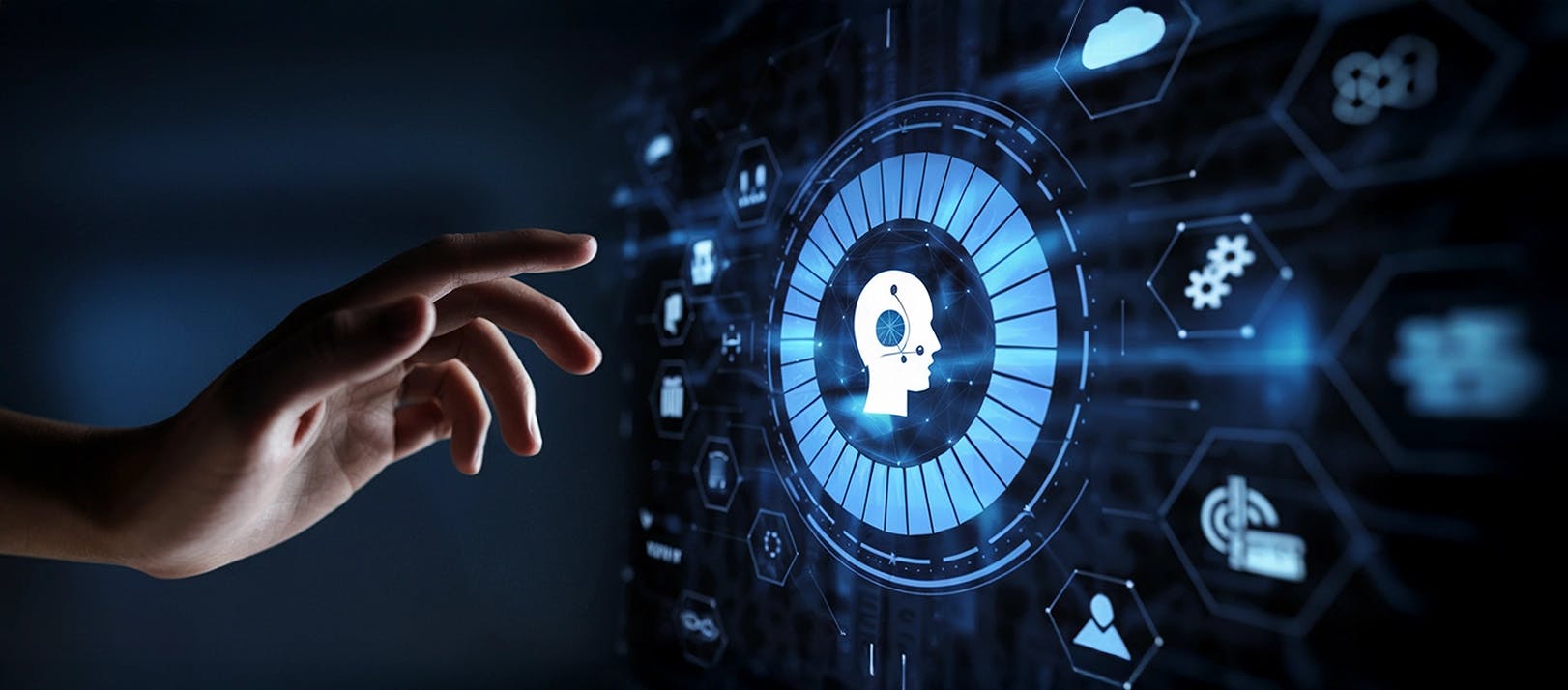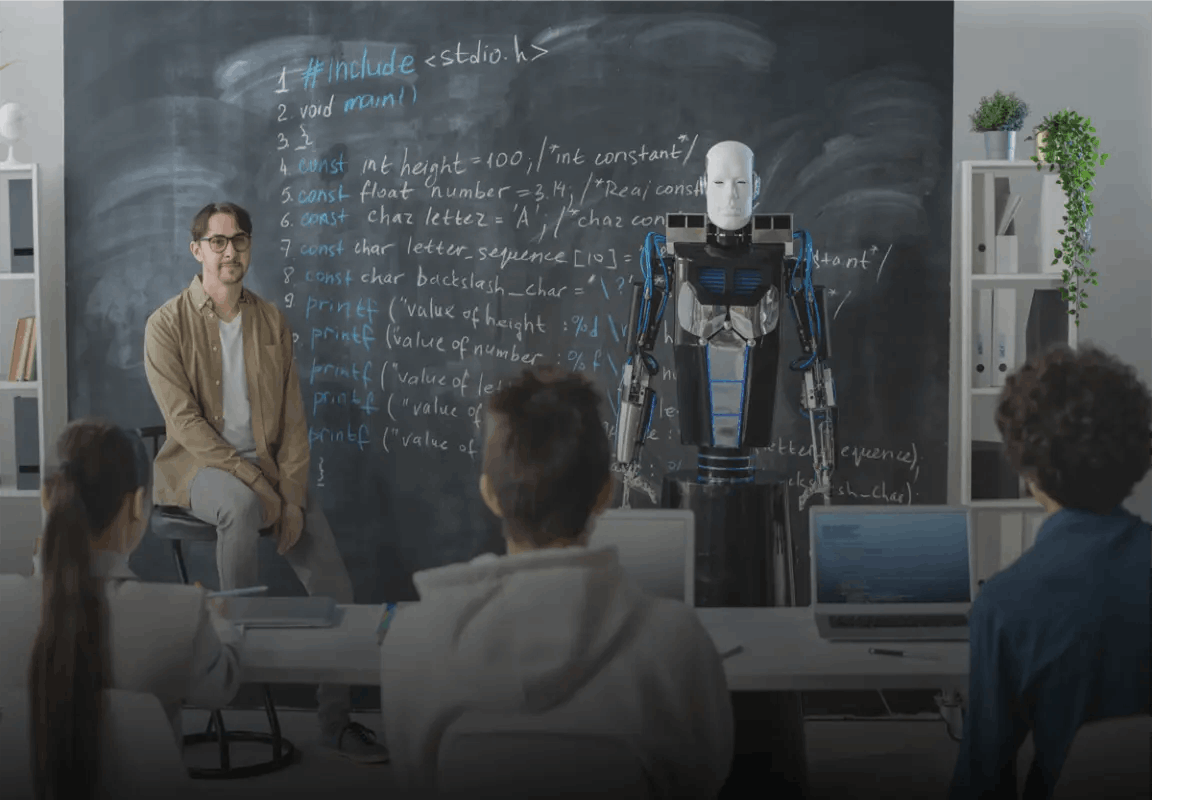
,
Let’s suppose a situation where in a busy classroom in a city school, a group of students simply logged in on their computers to receive personalized learning experiences from individual learning programs designed to fullfil their needs. The teachers are observing how artificial intelligence (AI) re-adapts lesson plans in real-time and also examines the student's progress and gives forecasts on the future of their performance. This is happening not in some movies, but in a completely real scenario of the world of education, where AI in EdTech is the main accelerator.
Making educational technology smarter is only possible through AI and therefore it is changing the way we think of teaching and learning. From computer programs that use AI to teach and machines that are getting programmed to use AI, the possibilities for AI to become a breeding ground for technological development are the highest. Great power comes with great responsibility. As AI technology is incorporated more and more into the educational field, ensuring that ethical standards are being met is the top priority.
AI can be a great force that drives the reform of education. However, it also raises moral questions that we cannot disregard. For example, in learning,
- How do we secure the data of the students in the digital era of learning?
- How can we be certain that the AI-powered tools are not biased and are inclusive enough?
These are some of the questions that the AI sector is facing and it is important to ensure the proper and ethical use of this technology. This blog will explore the real ethical standards in AI for EdTech and analyze teachers' role in education.
The Ethical Standards of AI in the EdTech Industry
The usage of AI in education presents a lot of ethical questions. So, let's first deal with the ethical standards and good practices that should be adhered to when AI is used in EdTech.
1. Ethical Standards in AI
Ethical AI is a conversation that is not new, but it is getting more and more critical day by day related to the world of education. Ethical AI in EdTech means the moral criteria that defines the developmental, operational, and the using of AI tools in learning environments. The crux of ethical AI in education is the use of artificial intelligence technologies to ensure privacy protection, improvement of the educational process, and the absence of the AI's harmful impact. Nonetheless, their practical implementation is a difficult task that requires joined efforts of all the parties—developers, educators, and regulators.
Ethical AI standards should be going over and beyond their basic functioning. They should prioritize human dignity, and emphasize societal values, and democratic principles transparently. The artificial intelligence systems, as used in educational institutions, enable the creation of co-learning environments where students are capable of developing skills. Thus the trust between students, educators, and AI technologies can be made possible.
2. Data Privacy and Security
Data privacy is one of the most important issues to be addressed when embedding AI into EdTech. AI systems, to be able to work well, at times must be able to retrieve significant amounts of student data, from academic records to behavioral analytics. The potential misuse or mishandling of this sensitive data is a major ethical problem.
An excellent way to protect student data privacy in AI-driven educational systems is to make sure that data is encrypted and anonymized. This will help prevent unauthorized access of data. The personal information of students should not be used for trading purposes or disclosed without their explicit permission. The ethical guidelines for AI tools must protect the privacy of the students’ data by not doing it without their informed consent. It should be very open about how it is happening and in compliance with privacy laws like GDPR (General Data Protection Regulation).
Moreover, EdTech companies and educational institutions need to introduce strict AI security measures such as periodic security audits and vulnerability checks to avoid data breaches and keep the data points secure.
3. Transparency and Accountability
The democratization of AI’s use in education is necessary, in regards to both transparency and accountability. With the growing impact of AI systems on the decisions made in education it is of high importance that the function and operation of these AI systems are open and clear to both educators and students. The AI tools must describe the processes they use to generate decisions transparently.
One of the most important factors that affects the reliability of the AI vision algorithms, is accountability. If an AI system makes an incorrect prediction or results in a biased result, who should be the one that takes responsibility. EdTech developers should be accountable for the actions of their AI programs for the innovative software to be successful. It is not enough to be clear about the fact that a method is transparent. The document must also specify how the proposed solution transparently exposes its decision boundaries.
One of the most important things to think about in this case is that AI systems should make educators feel safe & secure & students feel like they are equal. The ways to make this happen involve that the teachers are given the necessary resources and the know-how to grasp the AI technology and decision-making that is involved, & intervening if necessary.
4. Bias and Fairness in AI Algorithms
The problem of bias in AI systems is, in fact, the primary ethical issue in the EdTech domain. AI algorithms, if not written carefully, can easily follow a path where they are not sure what they are doing in their educational journey. For example, AI technologies can be taught on unfair data sets. Thus, they tend to give wrong inputs to students who are based on gender, ethnicity, or socio-economic background.
AI bias in education has a wide range of effects. AI-run assessment tools, for instance, may favor students from a particular demographic group over others. Reduction of bias in educational AIs is critical for fair learning experiences for all students notwithstanding the fact of their variety in upbringings.
Mitigating AI bias in EdTech involves ensuring that the data used for the training of AI systems is scrutinized. This, in turn, guarantees its representativeness to a diverse set of student populations. Moreover, the continuous testing and refining of AI algorithms are required to recognize and remove any biases that may come up over the period of training.
Create AI systems that foster fairness, accountability and transparency in education with Codiste
5. Inclusivity and Accessibility
As the implementation of AI tools in educational systems is becoming more common, one thing that should never be neglected is the fact that they should be inclusive and accessible to all students. Inclusive AI in education must support different learning styles and needs, such as students with disabilities, interests, learning differences, and students who come from different socio-economic backgrounds. This could be the development of AI systems that take care of disabled students, for instance, the usage of speech recognition technology.
Not only are AI tools for students fully accessible, but they are also the need of the hour. AI technologies should not fragment the educational process, but unite students coming from varying backgrounds and abilities. The EdTech companies need to implement AI-based solutions that will help the equal participation of all students through the process of learning.
Moreover, inclusion hinges on the affordability and availability of AI-powered tools which have to be considered as well. Even though AI can give a new lease of life to our educational system, it would be very unfair if its applications were limited to only rich schools or schools from well-funded districts. Governments, educational institutions, and EdTech providers must come together to ensure the participation of institutions from different educational settings with equal possibilities.
6. Ethical AI Development Practices
One of the most important things an AI system should be is ethical in its development practices. Developers should be responsible for developing systems following regulatory standards. The ethical principles of AI design not only concentrate on the technical side of AI but also include the social impacts.
To ensure that the use of AI in education is done in a responsible and ethical manner, one must inject ethical issues into each stage of the AI development process. This should include doing ethical impact assessments in teaching. Developers should plan for the probable after-effects of their AI systems and correct them in a timely manner to adapt to the persisting ethical challenges.
7. Legal and Regulatory Considerations
AI’s use in education is driven by various legal and regulatory frameworks. AI policy in the education sector continues to be rapidly changing, and consequently, EdTech providers need to keep themselves updated with recent regulatory updates.
When it comes to complying with AI laws, one has to respect data protection regulations, such as GDPR, which define the rules on how children's personal data can be collected, processed, and stored. This also involves obeying new AI-specific laws, for instance, the European Union AI Act which tries to set up a detailed framework of AI rules to be adopted by different industries, and schools.
EdTech companies should keep the legal standard for AI in EdTech before everything else, and make their tools in compliance with the highest regulations. Moreover, these companies must form a strong alliance with the various legislatures involved in the learning process.
8. Building a Culture of Ethical AI Use
Finally, one of the most crucial features of ethical AI in EdTech is the development of a responsible AI use in the education system. The establishment of an ethical AI culture will require the promotion of integration of AI ethics by the teachers, school administrators, and students.
Educational institutions should provide training on AI ethics that would help teachers to use AI in the classroom in a proper manner. This includes organizing professional development workshops about AI tools and their ethical aspects. Further, schools ought to establish AI ethics rules that are respected by the teachers and direct the use of AI in a more ethical way.
Promoting ethical AI is everybody’s job, not only developers or policymakers—they have to be engaged in it and the educational community at large as well. Cultivating the culture of ethical artificial intelligence will lead to the improvement of the educational process through AI systems.
Conclusion
AI continues to impact the education layout and the need for it to be ethical is more important than ever. Ethical AI practices will affect not only the edtech's data privacy but also the use of inclusive AI in education. Transparency, accountability, and fairness are the keys to AI systems that give power to students and teachers. This will help to minimize the bias and inequity risks.
The AI development ethics in EdTech is not just a technology change—it is a system to guarantee that AI reflects our ethical principles on a societal level. The full potential of AI in education will be realized only when we achieve responsible AI use that will ensure a schooling environment that is equally distributed and inclusive and which can transform the future of humanity.
The future of AI regulation in education is shaped by the integrity of machine learning. As a custom eLearning development company, Codiste is focused on creating intelligent, secure, and inclusive AI in EdTech solutions in the USA. They give top attention to ethical standards for the whole lifecycle of the custom eLearning development process. From avoiding breaking the law according to the data protection laws to designing AI tools that are easily accessible, Codiste is committed to building technology that enhances trust and brings value to the entire society. They also ensure that every solution they create benefits both organizations and students, yet, we maintain a high level of ethical standards considering Ethical AI development guidelines. Looking for some more info on AI ethical standards? Contact our experts now!



The Ultimate Guide to Agentic AI and Agentic Software Development
Know more
What is Agentic AI? A Beginner's Guide to the Future of Software Development
Know more
AI in Customer Service: Trends & Predictions for 2025
Know more
